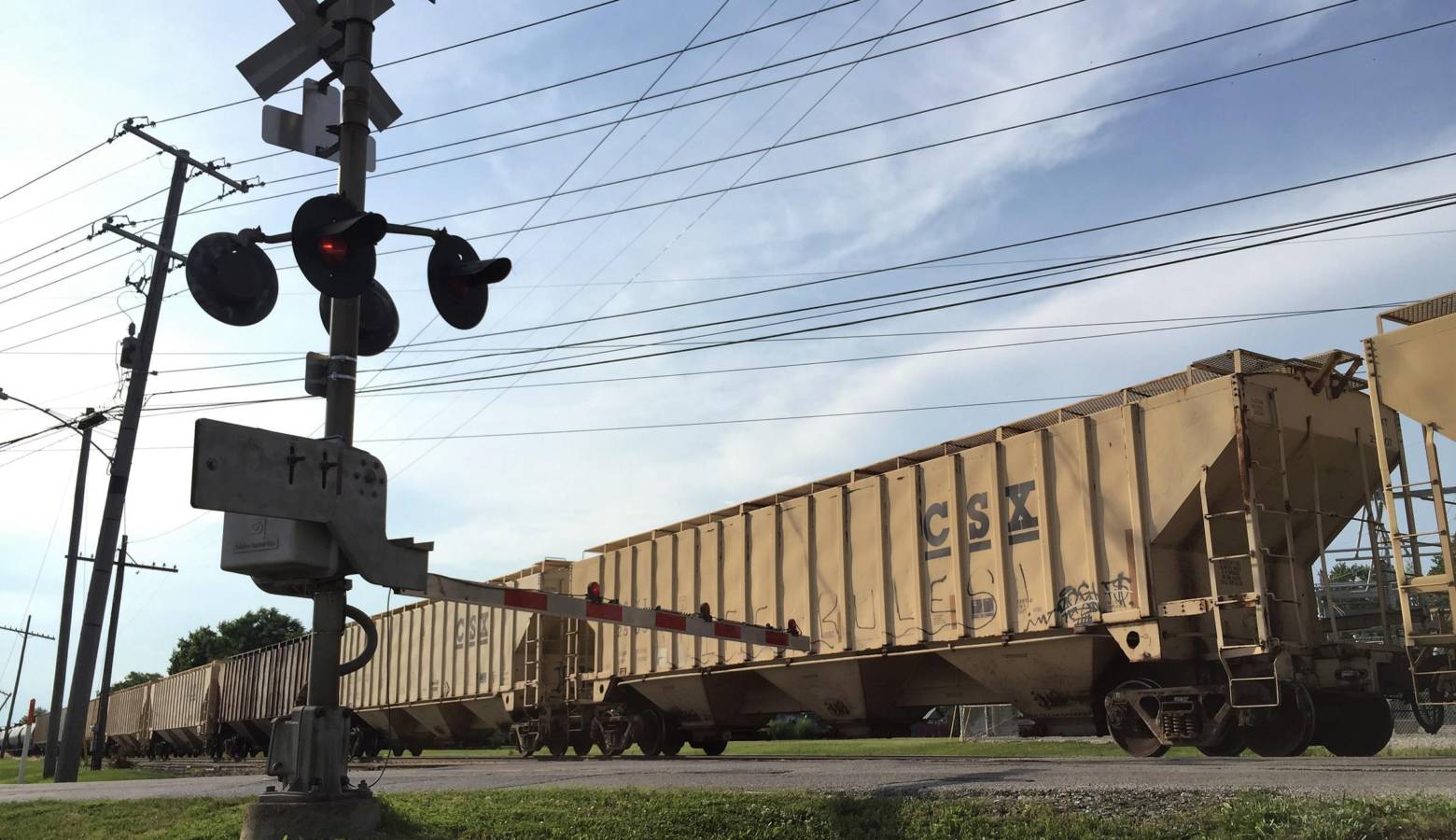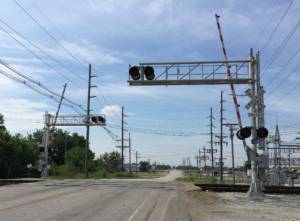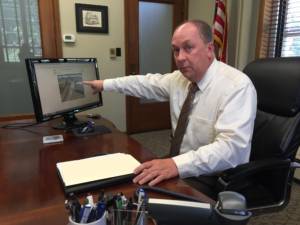Mayors: We’re Getting Railroaded By Trainwreck Laws, Blocked Crossings

For Indiana cities, having a good relationship with railroad companies can help generate a lot of business. But trains can also clog those cities, making drivers wait at blocked road crossings. As Indiana Public Broadcasting’s Charlotte Tuggle reports, mayors have begun to fight freight railroads, who they say have too much power and not enough accountability.
“Right now, we have a string to battle a giant,” says Frankfort Mayor Chris McBarnes, driving over a railroad crossing he says is frequently blocked by stopped trains.
According to a state law, local governments have the authority to fine a railroad company if a crossing is blocked for more than ten minutes. So McBarnes has begun urging residents to call police, who’ve so far written three tickets. Problem is: the fines max out at $500 apiece. That’s about one one-millionth of the profits CSX made in the fourth quarter of 2017 alone – a financial slap on the wrist.
McBarnes says he’s just trying to get the railroads’ attention.
“We’re calling upon our state legislators to put a law, a stiffer law into place – with teeth behind it,” McBarnes says. “That gives local communities the ability to battle with these people if we need to.”
There’s already a case before the Indiana State Supreme Court concerning blocked crossings. The Norfolk Southern Railway Company argues the existing state statute is preempted by a federal law – the Interstate Commerce Commission Termination Act, which centralizes regulation at the federal level. The court has yet to rule on the case.

Roy Scott Pkwy. highway-rail crossing in Frankfort. The intersection is located near a Norfolk Southern rail yard. (Photo: Charlotte Tuggle)
Meanwhile, residents of many Indiana communities must find alternate routes around stopped trains.
Charles Hart works in Crawfordsville and was on his way to the gas station after work when a train stopped and blocked an intersection along his route. He says he used to be stopped three or four times a week.
“I might sit here for another fifteen minutes maybe. If it’s still not moving, I’ll go around or just figure out something else to do,” Hart says. “This one doesn’t bother you nearly as much because this is a side street, but a lot of times they block three highways, basically, when they stop downtown.”
Those stoppages cause traffic to become so congested that Crawfordsville Mayor Todd Barton set up a camera at the intersection that livestreams to his office.
“Right now, it’s pretty calm, other than what they’re doing on the south sidewhich is a problem, but it’s not the catastrophe [like] when they block down here,” Barton says. “So it runs in cycles.”
But that’s not the only problem. Driving around Crawfordsville, Barton says highway-rail crossings are also in disrepair.
“Look at this crossing – this is a state highway. You can see the plates are partially gone,” Barton says. “If you hit that on a motorcycle, you’re going to be in trouble. Very dangerous.”

Crawfordsville Mayor Todd Barton points to a livestream in his office of a highway-rail crossing. (Photo: Charlotte Tuggle)
The mayors say the state isn’t doing enough and the railroads are bullies. The freight companies contest the fines, which keeps crossings blocked and in disrepair – two problems local government doesn’t have the money to fix. The railroad companies, on the other hand, claim any more regulation would hurt business for everyone.
The Indiana Department of Transportation’s response is the Local Trax program. It’s a matching grant program written into last year’s multi-billion-dollar highway tax bill which gives INDOT money to front up to 80-percent of the cost of improving safety at a highway-rail intersection.
INDOT spokesman Scott Manning says it’s the first step of a long-term solution to reduce the number of problematic, at-grade crossings around the state.
“There’s opportunity for the state, local government and host railroads to all have skin in the game, to all have a vested interest,” Manning says. “We think that’ll help maximize the impact.”
The other 20-percent of the funding would come from local governments. Host railroads have the option to partner with municipalities to cover that cost.
CSX and Norfolk Southern officials both declined a taped interview for this story.
In an emailed statement, CSX says it supports the Local Trax program. And as for the blocked crossings, the company says it has experienced what it calls “operational challenges” in Crawfordsville and has since made changes to reduce the number of incidents. Company officials say they apologize to residents and are communicating with local leaders about the problem.
In Norfolk Southern’s statement, the company says its government relations office in Indianapolis hasn’t heard any concerns from Frankfort, but is motivated to keep the trains moving for business reasons. It calls long delays “highly unusual” and asks residents – who it says “should be able to get around trains” at nearby crossings — to keep in mind that those trains, “provide jobs and tax revenue.”
